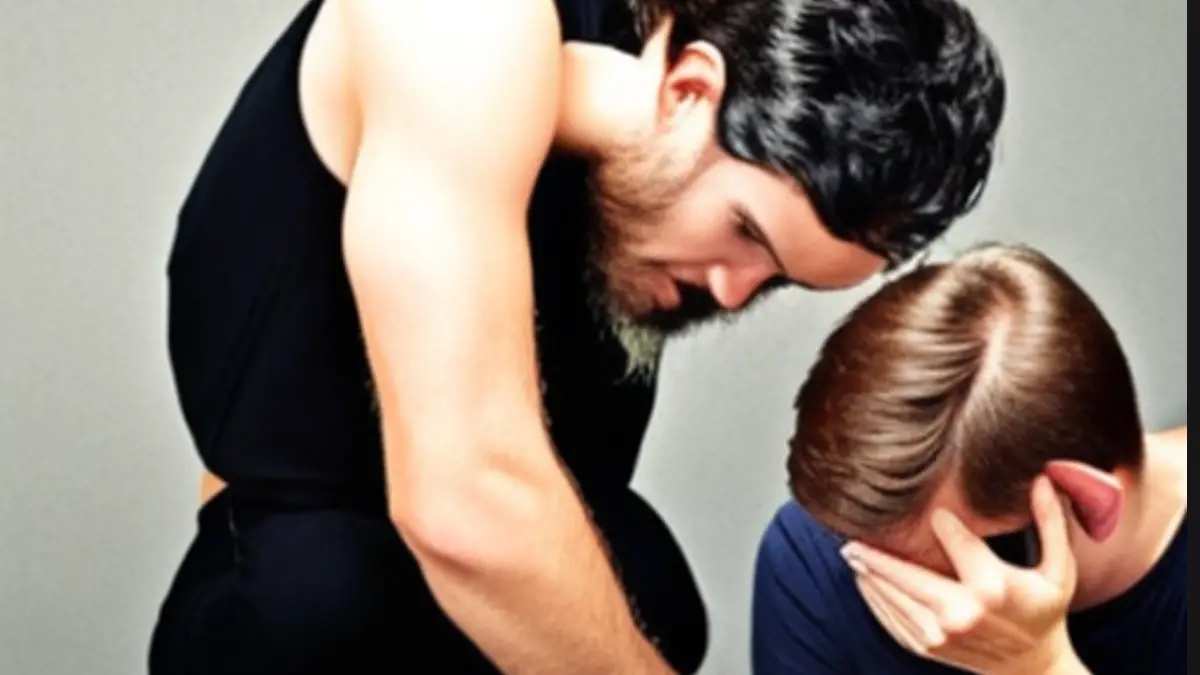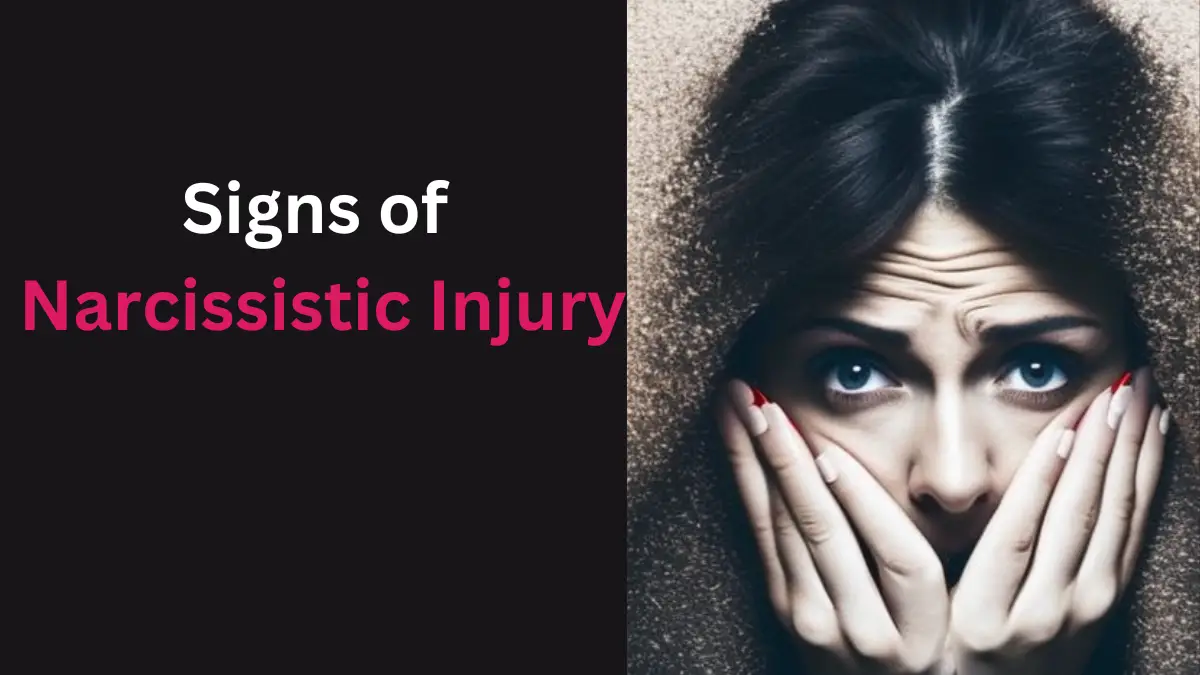Narcissistic injury is a term (also called “narcissistic wound”)used in psychology to describe the emotional pain that narcissists feel when they are criticized or rejected. Narcissists are extremely vulnerable to criticism, and often react very negatively when they experience narcissistic injury.
In this blog post, I will explain What narcissistic injury is, the Causes of narcissistic injury, the Signs of narcissistic injury, the Examples of narcissistic injury, and how to protect yourself from a narcissistic injury reaction?
What is Narcissistic Injury?
A narcissistic injury is anything that threatens a narcissist‘s image of themselves as perfect, special, and superior. In other words, it’s anything that puts a dent in their ego.
Causes of narcissistic injury
Here are some causes of narcissistic injury:
1. Criticism or rejection
Criticism and rejection are two of the most common causes of narcissistic injury. Narcissists are very sensitive to criticism, and they often react badly when they experience any kind of disapproval.
Rejection is particularly painful for narcissists because it confirms their fear that they are not loved and admired by others.
2. Humiliation

Ah, the second cause of narcissistic injury: humiliation. We all know how much fun that is, don’t we? To be laughed at, mocked, sneered at… it’s a great time. Narcissists just love being the butt of jokes, don’t they? In all seriousness, though, humiliation can be a very painful blow to the ego.
It can make someone feel small, worthless, and invisible. When someone is humiliated, their self-esteem takes a major hit. And for someone with narcissistic personality disorder, whose self-esteem is already fragile, to begin with, that can be devastating. So if you’re looking to hurt a narcissist, humiliation is definitely one way to do it.
3. Being ignored
Being ignored is another common cause of narcissistic injury. Narcissists crave attention and admiration, and when they’re ignored, it feels like they’re not worth anyone’s time. It can be a very hurtful experience for them.
4. Being treated like a child
Being treated like a child can be very hurtful to a narcissist. Narcissists want to be treated like adults, and when they’re not, it makes them feel unimportant and insignificant.
5. Envy of others
In a world where people are constantly competing for attention and status, it’s no wonder that envy is such a common emotion. And when it comes to narcissists, there’s plenty of envy to go around.
Narcissists are often envied for their beauty, their wealth, their power, and their success. They’re the people everyone wants to be like, and that can be very frustrating for others who feel like they can’t compete.
Examples of narcissistic injury
Here are a few examples:
- You didn’t like my new outfit? What kind of friend are you?
- I can’t believe you got promoted ahead of me. Clearly, the boss doesn’t appreciate my true worth.
- How dare you disagree with me! Don’t you know who I am?
As you can see, it doesn’t take much to trigger a narcissistic injury. So if you’re dealing with someone who seems a little too touchy, be careful what you say. You never know when you might accidentally inflict some serious ego damage.
Signs of narcissistic injury

If you’re interacting with a narcissist and you notice that they’re acting in any of the following ways, it’s likely that they’re experiencing narcissistic injury:
1. They’re defensive and argumentative.
When someone criticizes or rejects a narcissist, they often become defensive and argumentative. They may start making excuses for their behavior, or they may try to attack the person who criticized them.
They want to prove that they’re right and the other person is wrong.
2. They’re hostile and aggressive.
Hostility and aggression are two of the most common signs of narcissistic injury. When a narcissist is feeling injured, they may become hostile and aggressive toward the people around them.
They may start yelling, cursing, or even hitting people. They want to make everyone feel as miserable as they do.
3. They’re sulky and withdrawn.
Narcissists may become sulky and withdrawn when they experience narcissistic injury. They may become quiet and introspective, or they may isolate themselves from others.
They may also act out in negative ways, such as by engaging in self-destructive behaviors.
4. They’re overly emotional.
When a narcissist is experiencing a narcissistic injury, they may become overly emotional. They may cry, scream, or lash out at others. They may seem like they’re on the verge of a breakdown.
5. They’re obsessively focused on themselves.
Narcissists often become obsessively focused on themselves when they experience narcissistic injury. They may start talking about themselves constantly, and they may become very preoccupied with their own thoughts and feelings. They may also become very critical of themselves, and they may engage in self-judgment and self-hatred.
What Happens after Narcissistic injury?
The immediate response to such an injury is often intense anger and rage. Since narcissists believe they are superior beings who deserve special treatment and admiration from others, any slight against them can be perceived as a major attack on their inflated ego. This can manifest in various forms – from verbal outbursts to physical aggression towards the source of the criticism.
However, as time goes by and reality starts sinking in, many individuals with Narcissistic Personality Disorder (NPD) start feeling insecure and anxious about their damaged self-image. They may try to downplay or deny the incident altogether in order to protect their fragile egos from further harm.
In some cases, there might also be feelings of shame and guilt creeping in as they realize how their behavior has affected those around them negatively. But instead of taking responsibility for their actions like healthy individuals do, people with NPD tend to deflect blame onto others or external factors.
Another common reaction after suffering a narcissistic injury is seeking revenge against those who caused the damage. Narcissists have an intense need for control and power over others; hence any form of disrespect makes them feel powerless. To regain this sense of superiority, they may resort to manipulative tactics or even aggressive behaviors towards those who “hurt” them.
On the other hand, some individuals may retreat into a depressive state after experiencing a narcissistic injury. This could happen if the event triggers underlying insecurities and self-doubt. Since their entire identity is built on maintaining a perfect image, any criticism that breaks this facade can leave them feeling lost and hopeless.
Narcissistic Injury after break up
When a relationship ends, both parties will often experience some level of emotional pain and distress. However, for someone with narcissistic traits, this pain can be magnified due to their fragile sense of self-esteem and need for validation from others.
Narcissists often have an inflated view of themselves and rely on external sources to validate their worth. When a relationship ends, it can shatter this illusion and cause the narcissist to experience intense feelings of shame, anger, and inadequacy. This is known as a narcissistic injury.
After a breakup, a narcissist may go to great lengths to protect their fragile ego and avoid facing the reality of the situation. They may engage in behaviors such as denial, blame-shifting, and manipulation in order to maintain their sense of superiority and control.
This can be particularly challenging for the other party involved in the breakup. They may be met with gaslighting, emotional manipulation, and even abuse as the narcissist tries to regain their sense of power and control.
Additionally, a post-breakup narcissistic injury can also manifest in other ways such as excessive self-pity, seeking revenge on their ex-partner, or quickly moving on to a new relationship in order to boost their self-esteem.
How can you protect yourself from narcissistic injury’s reaction?
There are a few things you can do to protect yourself from narcissistic injury’s reactions:
1. Don’t criticize or reject the narcissist.
If you don’t want to hurt their feelings, then try not to criticize or reject the narcissist. If you must say something negative, try to be gentle and understanding.
2. Avoid competition and confrontation.
If you don’t want to make the narcissist feel envious, then avoid competition and confrontation. These are two things that tend to make them feel insecure and inferior.
3. Don’t ignore them.
Although it’s tempting to ignore the narcissist when they’re being difficult, it’s best not to do so. Ignoring them will only make them feel more ignored and injured. Try to be understanding and supportive, even when they’re acting out.
Can narcissists ever recover from a narcissistic injury?
Narcissists are well-known for their inflated egos and grandiose sense of self-importance. So what happens when their carefully crafted persona is punctured and they experience a “narcissistic injury”? Can they ever recover?
Unfortunately, the answer is probably not. Narcissists are notoriously thin-skinned and unable to deal with even the slightest criticism or setbacks. When their ego is bruised, they often react with anger, aggression, or even violence. And rather than try to repair the damage, they often withdraw further into themselves and become even more distant and disconnected from the people in their lives.
In short, narcissists are not exactly known for their resiliency or ability to bounce back from adversity. So if you’re unfortunate enough to be in a relationship with one, it’s best to be prepared for a long, uphill battle.
Last words
It is important to be aware of the signs and symptoms of narcissistic injury in order to protect yourself from their harmful effects. If you have been hurt by a narcissist, know that you are not alone and there are ways to heal.
Seek out support from friends, family, or professionals who can help you navigate these difficult waters. Remember, you are not responsible for the actions of another person, no matter how damaging they may be. You are worthy of love and respect, and you deserve to find happiness in your life.
